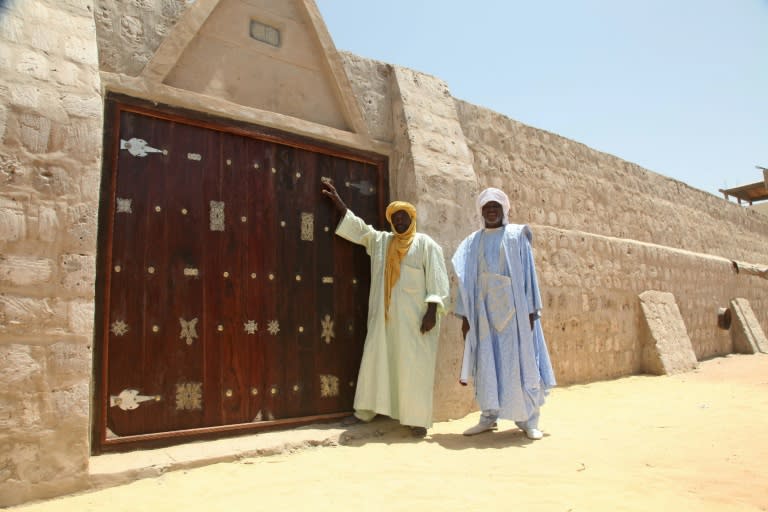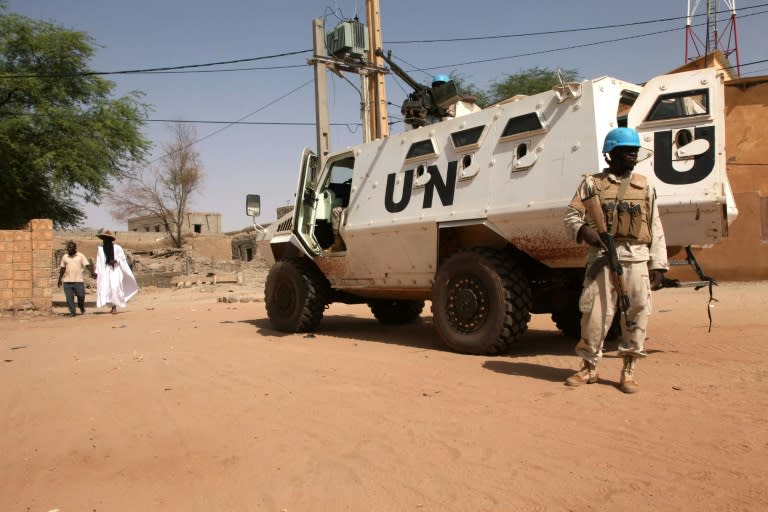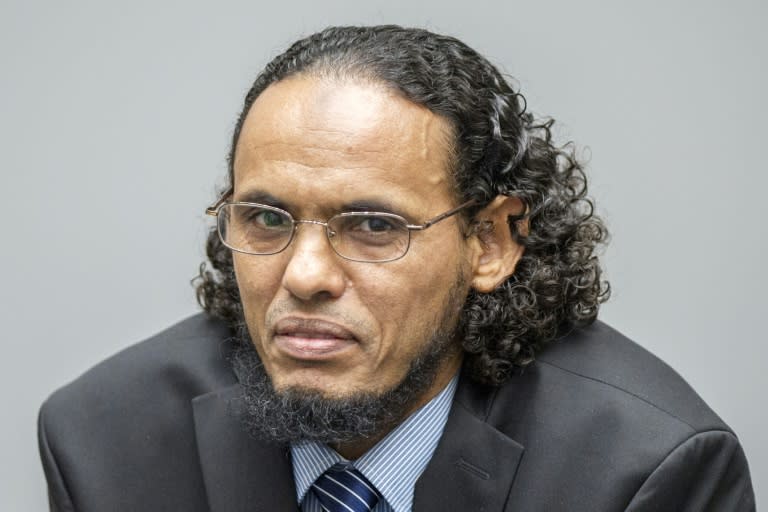Timbuktu ready to forgive as jihadist faces justice
Timbuktu's residents still recall with horror the sight of jihadists waging a campaign of destruction against the fabled Malian city, but now some say they are ready to forgive an extremist whose trial in The Hague they see as a rare moment of justice. On Tuesday, Ahmad Al-Faqi Al-Mahdi will be sentenced on war crimes charges for his role in the destruction of nine of Timbuktu's holy shrines as well as the door of a revered mosque in 2012. "The pardon that he's asked for, for every Muslim it is right to accept it, regardless of the bad things he has done," said youth leader Salah Maiga. "We are ready to accept his apology and to forgive him." Mahdi, himself from the Timbuktu area, has pleaded guilty to the charge of cultural destruction constituting a war crime by the International Criminal Court (ICC) and has begged for the community's forgiveness. His lawyer said he "lost his way" as head of Al-Qaeda-linked group Ansar Dine's "Hisbah" brigade, which enforced the group's strict interpretation of Islamic behaviour. "We were there with these barbarians, these lawless people without religion, who claim to speak in the name of Islam," Maiga said, recalling the day when Ansar Dine descended on the UNESCO world heritage site. Speaking at the unveiling of the restored door of the Sidi Yahia mosque that was damaged by Mahdi's men, Maiga added that he was hoping for a "fair trial for someone who destroyed something that belonged to the whole of humanity". - City of saints - Revered as a centre of Islamic learning during its golden age in the 15th and 16th centuries, Timbuktu in northern Mali is also known as the "the city of 333 saints" for the number of sages buried there. For several months now, inhabitants have once again begun openly appealing to saints buried in tombs for help, believing they are capable of divine intervention. Mahdi was well known for his belief in a strict interpretation of Islamic sharia law that was not widely supported in the community but which Ansar Dine sought to impose when they took over the city. Mahdi and his men considered the worship of saints un-Islamic. "I know exactly who he is," said jeweller Youba Maiga, who also witnessed the destruction at Sidi Yahia and remembered the curly-haired jihadist on patrol with his band of morality police. "We even spoke once: they said they were just coming for sharia, so that sharia could be applied. I said 'Before you do that, you have to check with everyone'," he added. Muslims in Mali are better known for practising a Sufi version of Islam, which is more pluralistic and incorporates some elements of mysticism. The jeweller said his own Islamic beliefs meant he had "no problem" forgiving Mahdi. "We just want peace here and we want justice to be done," he added. Ansar Dine was allied with Al-Qaeda in the Islamic Maghreb (AQIM) and a third local group until it was ousted in a French-led intervention in January 2013. Large swathes of the country remain lawless and for some Malians Mahdi's case is a rare example of justice being carried out. "We think that you have to make an example of someone, even if that person represents a single, weak link in the whole chain of predators and criminals," writer and activist Ismaila Samba Traore told AFP in the Malian capital, Bamako. "There are criminals who are still out there, people with hands covered in blood," he said. "There has been so much violence during this crisis that a huge number of victims are awaiting a result that will deliver justice." - Small fish - El-Boukhari Ben Essayouti, who oversaw the reconstruction of Timbuktu's damaged sites with UNESCO assistance, said that Mahdi's trial itself was a "teachable moment" and more important than the prison sentence of up to 11 years that he could face on Tuesday. "The process has to be useful for something, showing to everyone that in the same way that we cannot kill another person with impunity, we cannot just destroy a world heritage site with impunity either," he said. But others fear the trial has netted a small fish while the real perpetrators remain at large. "It's good that justice will be done. But it shouldn't be the case that this creates injustices: we catch the weakest and let the strongest go," said a Timbuktu resident who requested anonymity for fear of reprisals. "The ones really responsible are still out there."




